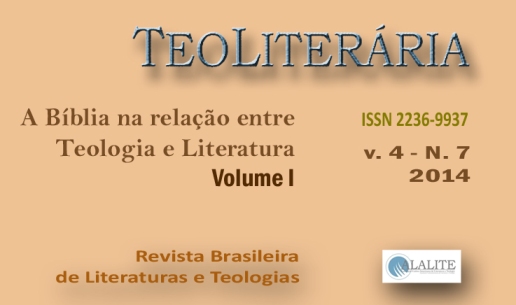Recepção estética e deslocamento semântico-teológico da obra de Homero
DOI:
https://doi.org/10.19143/2236-9937.2016v4n7p265-277Resumo
A obra de Homero constitui verdadeira “bíblia” dos gregos, atendendo a necessidade de uma busca de sentido no momento em que a sociedade está em crise, tornando-se o poeta o “educador dos gregos”. Contudo, na crítica de Levinas, os regimes totalitários são advindos pelo solipsismo da meditação do Ser, sendo o modelo de Ulisses, que voltando para Ítaca, sempre volta ao “Mesmo”, diferente do modelo de Abraão, que se lança a um caminhar de uma promessa, que parte e convida a ir em direção do Outro. Entretanto, um olhar mais atento na obra homérica é capaz de identificar duas teologias, uma teodiceia que justifica a guerra de Tróia por vontade divina, na Ilíada, e outra que se apresenta como aquilo que chamamos de teopatodiceia, ou seja, como busca de sentido, presente na Odisseia, na medida em que o herói descobre na volta para Ítaca, o auxílio de Atenas, indicando a busca da sabedoria apreendida de uma visão teológica, tal qual a sabedoria da literatura judaica e cristã. Nosso trabalho será identificar o deslocamento semântico teológico na obra homérica, enquanto pergunta pelo sentido de Deus na busca de sentido humana, na metamorfose das imagens teológicas que conjuga linguagem e práxis.Downloads
Publicado
2014-12-07
Como Citar
Villas Boas, A. (2014). Recepção estética e deslocamento semântico-teológico da obra de Homero. TEOLITERARIA - Revista De Literaturas E Teologias, 4(7), 265–277. https://doi.org/10.19143/2236-9937.2016v4n7p265-277
Edição
Seção
Relatos de Pesquisa
Licença
A TeoLiterária – Revista de Literaturas e Teologias é detentora dos direitos autorais de todos os artigos publicados por ela. A reprodução total dos textos em outras publicações, ou para qualquer outro fim, por quaisquer meios, requer autorização por escrito do editor. Reproduções parciais de artigos (resumo, abstract, mais de 500 palavras de texto, tabelas, figuras e outras ilustrações) deverão ter permissão por escrito do editor e dos autores.



